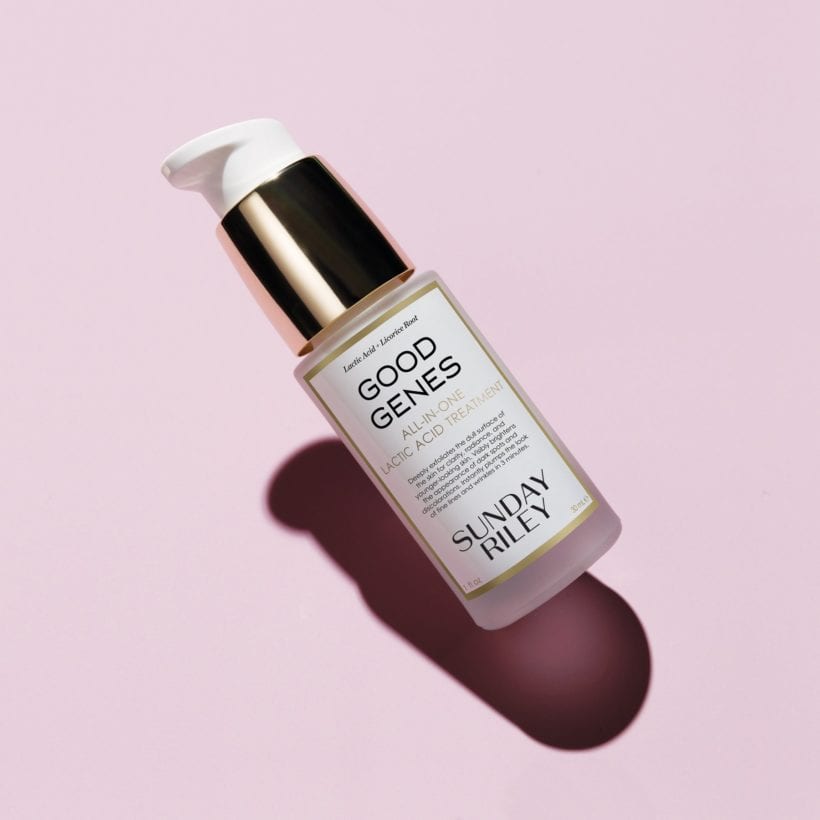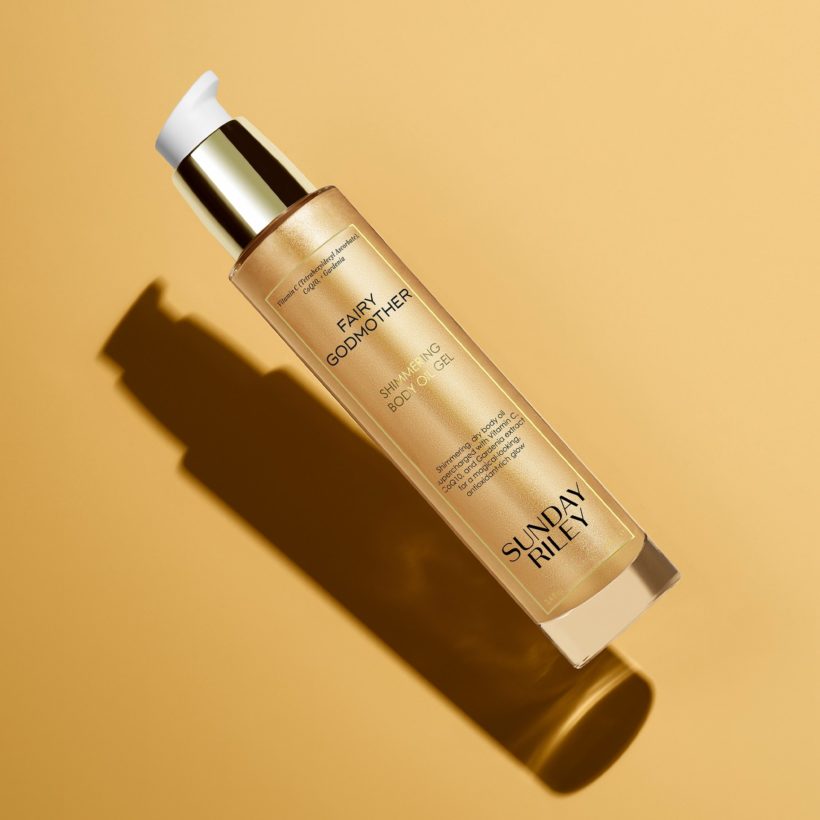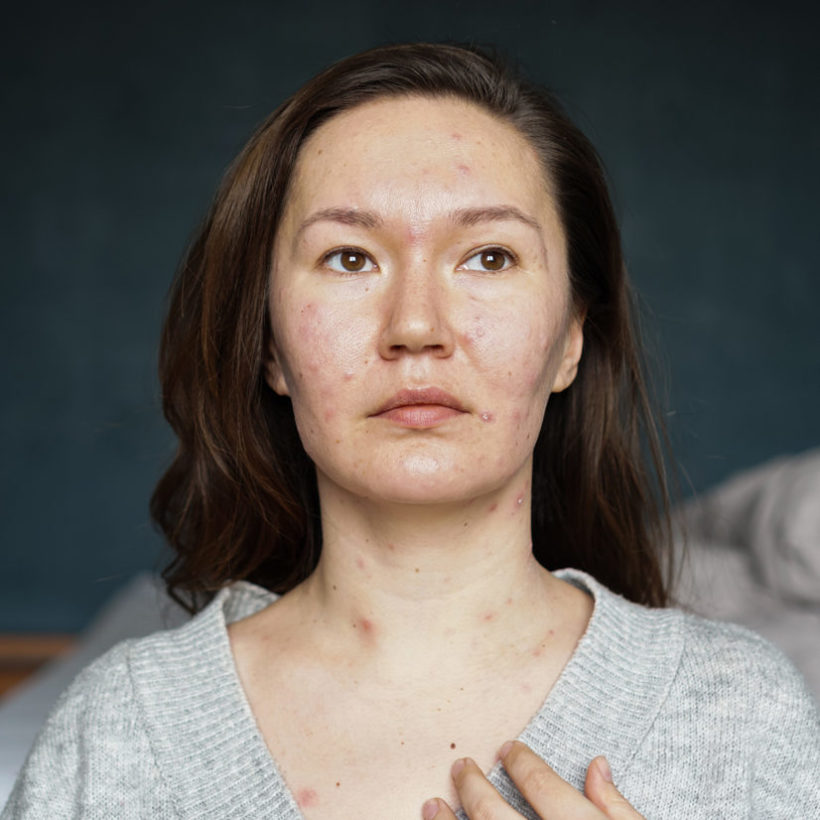Contrary to what you might think, oily skin doesn’t mean “dirty” skin. People with oily skin produce more sebum — a natural oil made by the sebaceous glands in our skin, explains Brendan Camp, M.D., a Manhattan-based dermatologist at MDCS Dermatology. “Sebum coats hairs to make them more pliable and soft and also helps keep the skin moisturized and smooth,” he says. This means that people with oily skin face certain benefits. “People with oily skin age very gracefully,” says dermatologist Brooke A. Jackson, M.D. And according to the American Academy of Dermatology, they tend to have thicker skin, which results in fewer wrinkles and fine lines.

Despite this, if you’re dealing with the downside of oily skin — like breakouts and clogged pores — many obvious reasons cause it that ranging from stress to plain ol’ genetics. But with the help of our experts, we dig into the sneakier culprits that could be the root of the cause.
Meet the Experts
Brooke A. Jackson, M.D. is a dermatologist in Durham, North Carolina.
Brendan Camp, M.D., is a Manhattan-based dermatologist at MDCS Dermatology.
Marisa Garshick, M.D. is a dermatologist at Medical Dermatology & Cosmetic Surgery.
Dendy Engelman, M.D. is a cosmetic dermatologist and Mohs surgeon at the Shafer Clinic in New York City.
Todd Minars, M.D. is a dermatologist at Minars Dermatology in Hollywood, Florida.
You’re using pore-clogging ingredients
In general, dryness and oiliness represent a compromised skin barrier, according to Dendy Engelman, M.D., cosmetic dermatologist and Mohs surgeon at the Shafer Clinic, so she recommends looking for strengthening and moisturizing products like ceramides and peptides. “If the oiliness is caused by dryness, using lightweight ingredients that pack in a lot of hydration, like hyaluronic acid or squalane, can help,” she adds. You also want to use skincare and makeup ingredients that are oil-free and non-comedogenic as comedogenic products are known to clog pores, adds Marisa Garshick, M.D., a dermatologist at Medical Dermatology & Cosmetic Surgery.

You’re overwashing your face
If you’re washing your face at the slightest sign of excess oil, you might be stripping the skin of the oils it needs to protect your skin barrier. When you wash your face repeatedly, you’re causing your skin to go into overdrive, producing even more of those oils, which can make oily skin even more oily, explains Todd Minars, M.D., dermatologist at Minars Dermatology. Instead of washing their face several times per day, he advises his patients to do it just twice — once in the morning and once before bed (and any time you exercise).
You’re scrubbing too harshly
On the topic of face washing, resist the urge to scrub away the oil with a harsh, physical scrub or a manual cleansing brush. “Some patients hear wonderful reviews of motorized facial cleansing brushes and introduce them into their routine, but wind up unintentionally using them too often, whether once a day when they wash their face or for those that wash more, each time,” he says. Like overwashing, these brushes can strip your skin of those natural oil-producing properties. “Those brushes can be very helpful and achieve a variety of benefits, but you don’t need to use them more than 1 or 2 times a week,” he adds. On the same token, while exfoliating is a great way to slough off dirt, dead skin cells, and excess oils, if you do it too often, you might also be stripping your skin.
You’re exfoliating too often
Exfoliating is an excellent step in your skincare routine and helps slough dirt, oils, dead skin cells, and other debris from your face to leave it clean and smooth and promote new skin cells to form. But that’s if you do it at least once or twice a week, according to Dr. Minars. “For those patients trying to exfoliate every day, you’re making your oily shine worse because you’re stripping the oils from your skin,” he says. “When this happens, more oil is produced, becoming a negative feedback loop of issues.” He recommends exfoliating no more than once or twice a week. Consider incorporating a gentle chemical exfoliator like Sunday Riley Good Genes Lactic Acid Treatment that can even be used daily on most skin types.
You’re in a humid environment
Heat and humidity promote your skin to create more sebum (alternatively, if you’re constantly in cold or dry climates, it could also cause the skin to produce more oil to compensate for its dryness). Though you obviously can’t control the weather, you can do your best to temper the environment indoors. Use a dehumidifier for humid climates or a humidifier if the air is too dry to help your skin find balance when working from home.

You’re taking certain medications
Some medications that alter your hormone levels (like oral birth control) can cause an increase in oil production. Any medication that has a side effect of dehydration can also send your oil levels into overdrive. It’s always best to chat with your medical professional if you think your medications are a cause of concern.
You’re sunbathing
Though tanning might give your skin a golden glow, not only does the sun increase your risk of melanoma, but it can also dry out your skin and cause your body to produce more oil to create a protective layer. Skip the sunbathing and opt for a sun-safe way to get an all-over glow with Sunday Riley Fairy Godmother Shimmery Body Oil Gel. It has a luminous, golden shimmer that mimics the coveted glow you get from spending a day in the sun.
Your diet is dairy-heavy
As much as a scoop of delicious ice cream tastes great on a summer day, experts believe that dairy (and processed foods) show insulin resistance that could be linked to encouraging oil production in your skin. It doesn’t necessarily mean you have to go cold turkey: Find a well-rounded, balanced diet and see if decreasing your dairy intake makes a difference in your skin.
We only recommend products we have independently researched, tested, and loved. If you purchase a product found through our links, Sunday Edit may earn an affiliate commission.









